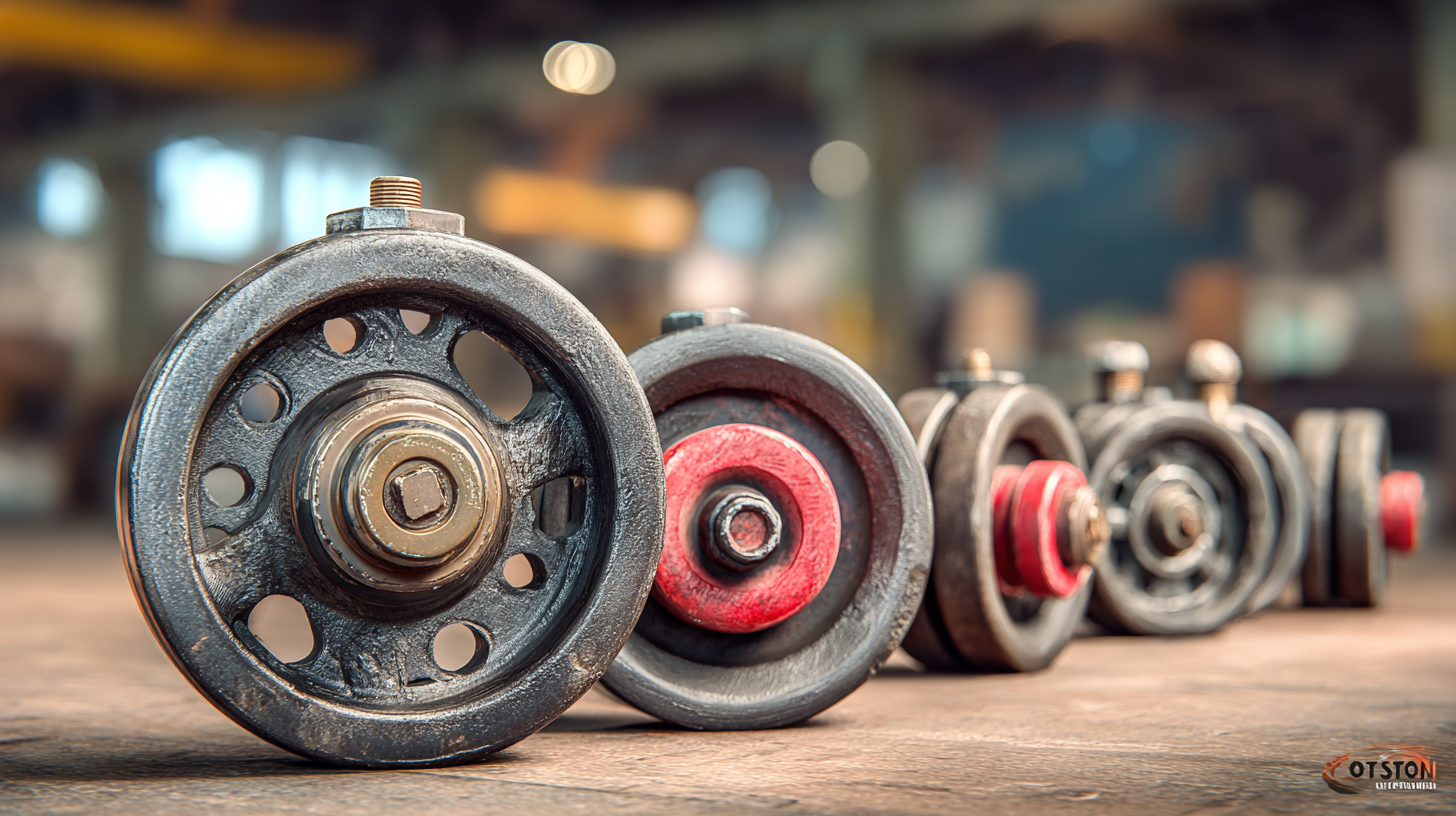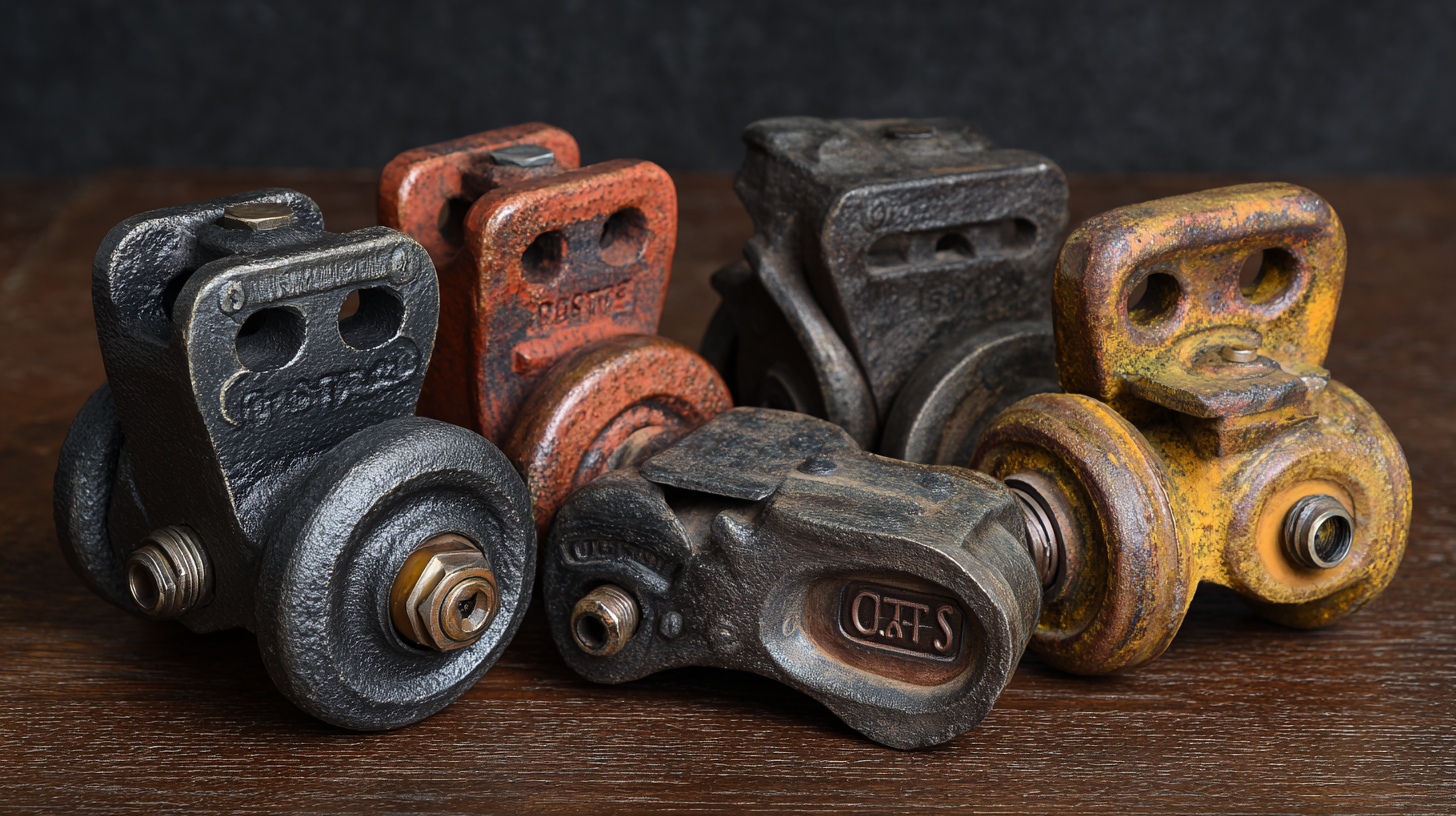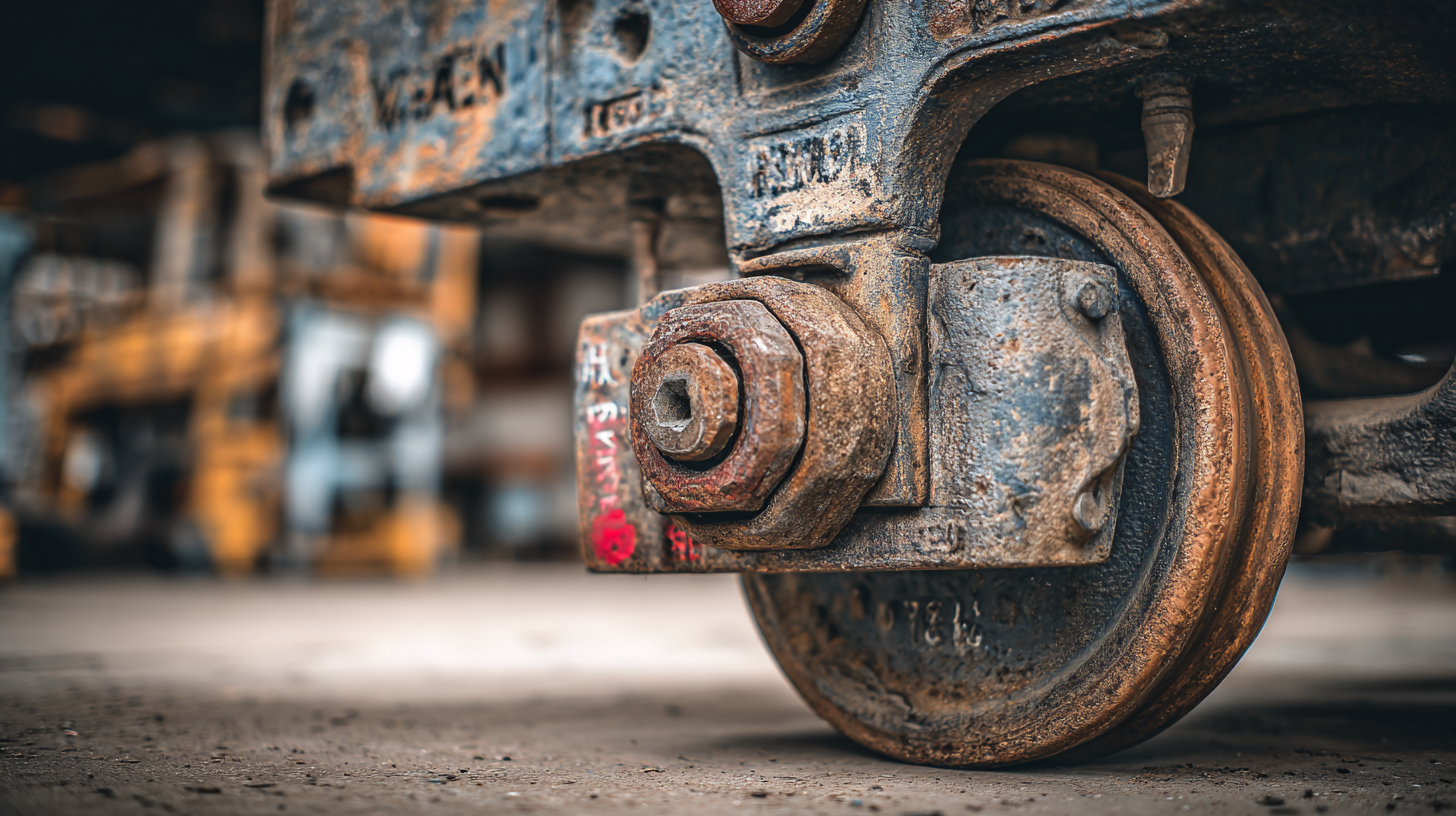
Top 7 Tips for Finding the Best Iron Castors Manufacturer Globally
In the dynamic landscape of manufacturing, sourcing the best Iron Castors is crucial for ensuring quality and efficiency in various industrial applications. According to a recent market analysis by Research and Markets, the global iron castors market is projected to grow at a compound annual growth rate (CAGR) of 5.2% from 2023 to 2028, underlining the increasing demand for durable and high-performance castors. This burgeoning market emphasizes the significance of collaborating with reputable manufacturers who not only meet quality standards but also adhere to sustainable practices. Therefore, understanding how to identify and evaluate potential suppliers becomes indispensable for businesses aiming to enhance their operational capabilities. This blog will provide the top seven tips for finding the best Iron Castors manufacturer globally, helping you navigate the complexities of supplier selection and ensuring that your investment leads to superior product performance.

Understanding the Importance of Quality in Iron Castor Manufacturing
When it comes to iron castor manufacturing, the importance of quality cannot be overstated. A recent study on the material and energy flows in the iron and steel industry highlights significant challenges that manufacturers face today, particularly in optimizing resource efficiency and reducing environmental impact. According to the report, over 40% of the industry's energy consumption comes from outdated practices that could be improved with modern techniques. This underlines the critical need for manufacturers to invest in quality control and innovative technologies to remain competitive.
Quality in iron castor manufacturing not only impacts the performance and sustainability of the products but also influences the entire supply chain. The study indicates that high-quality manufacturers can achieve a 15-20% reduction in material waste, which contributes to both cost savings and ecological advantages. Moreover, as global demand for iron castors increases, ensuring quality becomes essential to meet international standards and regulatory requirements. Manufacturers that focus on quality are more likely to build trust with clients, reduce rework, and improve overall operational efficiency—all crucial elements for success in the global market.
Identifying Key Features to Look for in a Manufacturer's Profile
When searching for the best iron castors manufacturer globally, it is crucial to consider specific key features outlined in the manufacturer’s profile. One of the primary indicators of quality is the manufacturer’s commitment to environmental standards. Recent studies show that emissions, such as volatile organic compounds (VOCs) from various industrial processes, significantly impact air quality and overall public health. Manufacturers that prioritize sustainable practices and adhere to strict emission regulations tend to deliver more reliable products, as their production methods are often more advanced and carefully monitored.
Additionally, it is vital to assess the manufacturer’s quality control standards. A rising trend in the manufacturing industry is the implementation of collaborative strategies between experts to enhance product reliability. Recent collaborations among various engineering organizations have reportedly set new benchmarks for quality assurance, ensuring that manufacturers uphold rigorous testing protocols and maintain transparency in their operations. When choosing a manufacturer, look for documented quality control measures and certifications that reflect their dedication to producing high-quality iron castors consistently.
Furthermore, understanding a manufacturer’s performance metrics can provide insights into their reliability and operational efficiency. Key performance indicators (KPIs) are critical in evaluating how well a manufacturer meets its targets and maintains quality over time. Techniques like real-time performance tracking and stringent testing can indicate a manufacturer’s commitment to excellence, which is essential for businesses reliant on durable and efficient products. By focusing on these attributes, you can make an informed decision in selecting the best iron castors manufacturer for your needs.

Evaluating Manufacturer Capabilities and Production Processes
When searching for the best iron castors manufacturer, evaluating their capabilities and production processes is crucial. Understanding the level of expertise a manufacturer possesses can directly impact your project's success. You should assess their production facilities, technology, and workforce skills to ensure they align with industry standards. Look for manufacturers who invest in modern equipment and advanced production techniques, as this often translates to higher quality products.

Another vital factor is the variety of designs and customization options available. A versatile manufacturer can cater to specific project needs, offering tailored solutions that fit various applications. Consider visiting the manufacturer's site if possible; witnessing their production process firsthand can reveal much about their operational efficiency and quality control measures.
Lastly, do not overlook the importance of communication and customer service. A responsive manufacturer will keep you updated throughout the production process, making it easier to address any potential issues swiftly. Establish a rapport with your potential partners to ensure a smooth working relationship, which can be essential in the long-term success of your projects.
Comparing Global and Local Iron Castor Suppliers: Pros and Cons
When considering sourcing iron castors, the choice between global and local suppliers can significantly impact your business operations. Global suppliers often offer a wider variety of products, competitive pricing, and advanced manufacturing technologies. They can leverage large-scale production to keep costs low, which is particularly beneficial for bulk orders. Additionally, global manufacturers may have access to superior materials and infrastructures that enhance product durability and performance. However, there can be drawbacks, such as longer lead times and potential communication barriers due to time zone differences and language variations.
On the other hand, local suppliers offer the advantage of easier communication and faster delivery times. Proximity can lead to better customer service and the ability to address issues swiftly. Local manufacturers also contribute to regional economies and may offer customized solutions that align more closely with specific local market demands. However, they might present limitations in product variety and competitive pricing compared to their global counterparts. Businesses need to carefully weigh these pros and cons to determine which route aligns best with their operational needs and values.
Top 7 Tips for Finding the Best Iron Castors Manufacturer Globally - Comparing Global and Local Iron Castor Suppliers: Pros and Cons
| Criteria | Global Suppliers | Local Suppliers |
|---|---|---|
| Cost-effectiveness | Potentially lower costs due to mass production | Higher costs but can negotiate better deals |
| Lead Time | Longer lead times due to shipping logistics | Shorter lead times and faster delivery |
| Quality Control | Standards may vary; need to check certifications | Easier to monitor and ensure consistent quality |
| Communication | Potential language barriers and time zone differences | Easier communication and understanding |
| Flexibility | Less flexible to changes in orders | More flexible with modifications and custom requests |
| Regulatory Compliance | Could face more complex regulations | Familiarity with local regulations |
| Sustainability Practices | Varied practices; need to research | More likely to follow local sustainable practices |
Tips for Assessing Customer Reviews and Testimonials on Manufacturers
When searching for the best iron castors manufacturer, customer reviews and testimonials can provide invaluable insights. These reviews often reflect the real-world experiences of previous clients, making them a vital resource for assessing a manufacturer’s reliability and quality. Look for patterns in the feedback—repeated praise for craftsmanship or consistent complaints about delivery times can be telling indicators. Pay attention to the details in the testimonials; well-rounded reviews that cover various aspects of the service, such as customer support and product durability, are more trustworthy than vague statements.
Additionally, consider the sources of these reviews. While manufacturer-hosted reviews can offer some perspective, they may not present the complete picture. Pursuing independent review platforms or industry-specific forums can reveal unfiltered opinions. It’s also beneficial to reach out directly to customers who have left reviews, if possible, to gain deeper insights into their experiences. By taking the time to thoroughly evaluate customer feedback, you can better navigate the options available and confidently select a manufacturer that meets your quality standards and business needs.
